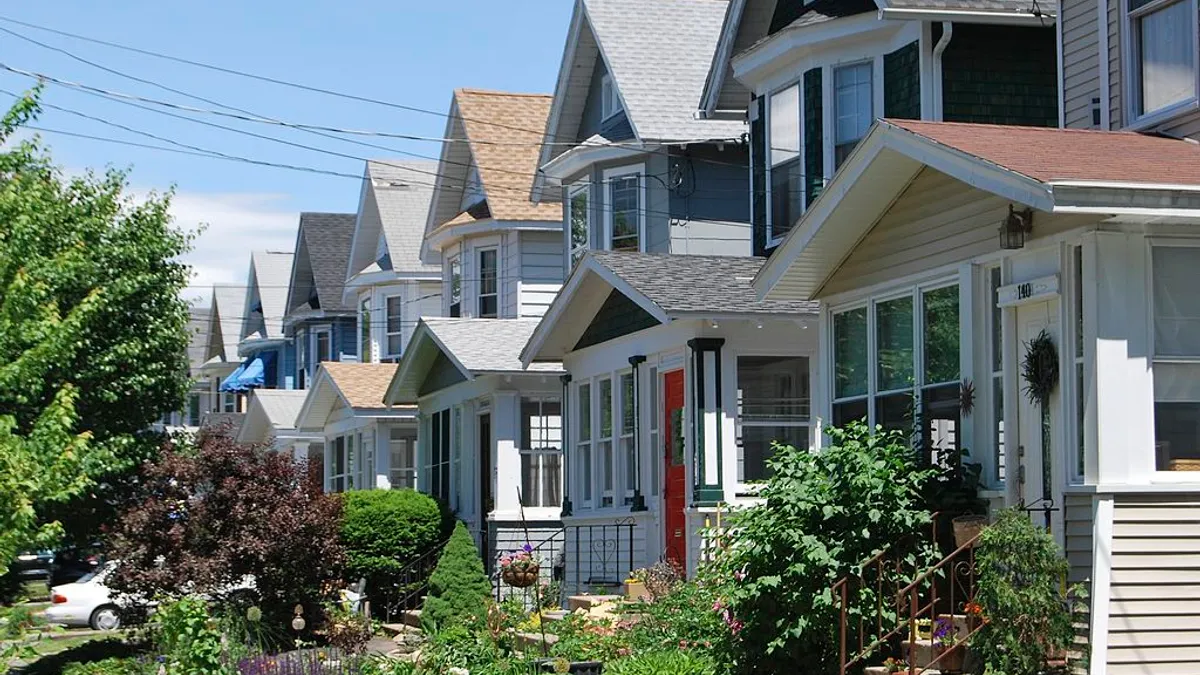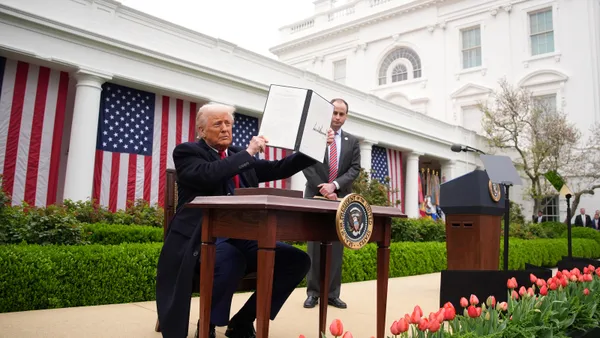Dive Brief:
-
Existing-home sales fell 0.9% between July and August to a seasonally adjusted annual rate of 5.33 million, the National Association of Realtors reported Thursday, falling short of analyst expectations. Recovering slightly from July's weak report, August's figure was the second-lowest of 2016, though it stayed slightly ahead (0.8%) on a year-over-year basis.
-
Sales in all major U.S. regions in August remained roughly on-par with the year-earlier period, with the Northeast unchanged and the Midwest, South and West holding less than 1% above the August 2015 rate.
-
The median existing-home price in August was $240,200, a 5.1% increase over August 2015 and marking the 54th-consecutive month of year-over-year housing price increases.
Dive Insight:
Recent employment gains in the broader economy aren't translating into home sales, the NAR reported, as rising home prices and limited for-sale inventory prevent would-be buyers from entering the market. The share of first-time buyers of pre-owned homes in August was 31% of sales, down from 32% in July and August 2015. That group of buyers has struggled to enter the market, held back by high prices and a tight lending environment
Inventory is also a concern, with the current pace of existing-home sales capable of exhausting housing inventory in 4.6 months rather than the six-month supply that typically indicates a healthy market, MarketWach reports. A report this week from real estate website Trulia affirms this, noting that the U.S. housing inventory shrunk in the third quarter of 2016 for the fifth-consecutive quarter and is down 6.7% year-over-year. Among the housing types hardest hit were starter and trade-up homes, Trulia reports, down 10.7% and 9.2%, respectively, during the quarter.
The news comes as homebuilders begin to turn their focus toward younger buyers, particularly millennials who are approaching home ownership for the first time after waiting out the recession and its extended recovery as renters. As consumer credit loosens, first-time buyers will be seeking affordable properties. "[T]here's this big conversation of whether millennials are more comfortable living in apartments for longer, will they ever buy homes," Lou Steffens, east area president at homebuilder Taylor Morrison, told Construction Dive last month. "The research we've seen is that at a certain life stage, similar to other generations, they'll still buy a home. They'll have children or get married. They exhibit a lot of the same characteristics."














